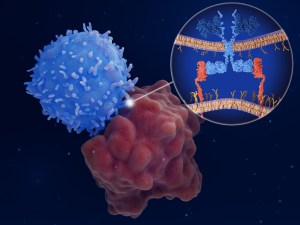Tag: Life Sciences
-
Health
Decoding effort reveals fly species’ DNA
An enormous effort to decode the DNA of one of science’s most important laboratory animals — the fruit fly — ended in success this week as a collaboration of researchers from 16 nations announced the sequencing of 10 fly species’ genomes.
-
Science & Tech
Engineered weathering process could mitigate global warming
Researchers at Harvard University and Pennsylvania State University have invented a technology, inspired by nature, to reduce the accumulation of atmospheric carbon dioxide (CO2) caused by human emissions.
-
Health
AAAS selects four faculty members as fellows
The American Association for the Advancement of Science (AAAS) recently awarded the distinction of fellow to four Harvard faculty members. In all, 471 new members were named for their efforts toward advancing science applications that are deemed scientifically or socially distinguished.
-
Arts & Culture
Taxonomist Carl Linnaeus on show at HMNH
Carl Linnaeus believed that the fruit of the Tree of Knowledge was not an apple but a banana. He came to this conclusion in 1737, while studying plant specimens at Hartecamp, the estate of George Clifford, a wealthy Dutch banker and director of the Dutch East India Company. Clifford collected exotic plants from around the…
-
Health
DNA reveals Neanderthal redheads
Ancient DNA retrieved from the bones of two Neanderthals suggests that at least some of them had red hair and pale skin, scientists report this week in the journal Science. The international team says that Neanderthals’ pigmentation may even have been as varied as that of modern humans, and that at least 1 percent of…
-
Science & Tech
New laser nanoantenna shows unprecedented detail
In a stunning feat of nanotechnology engineering, researchers from Harvard University have demonstrated a laser with a wide-range of potential applications in chemistry, biology, and medicine. Called a quantum cascade (QC) laser antenna, the device is capable of resolving the chemical composition of samples, such as the interior of a cell, with unprecedented detail.
-
Arts & Culture
Taxonomist Carl Linnaeus on show at HMNH
Carl Linnaeus believed that the fruit of the Tree of Knowledge was not an apple but a banana. He came to this conclusion in 1737, while studying plant specimens at Hartecamp, the estate of George Clifford, a wealthy Dutch banker and director of the Dutch East India Company. Clifford collected exotic plants from around the…
-
Health
Panel investigates media reporting on science and politics of stem cells
Stem cells, politics, “fairness,” and what one participant termed “the disintegration of traditional journalism,” were all on the bill at Thursday night’s (Oct. 18) public forum titled “Stem Cells and the Media,” hosted by the Harvard Stem Cell Institute.
-
Health
Field school brings students to Borneo
Morning came in the middle of the night in the hikers’ hut partway up the side of Borneo’s towering Mount Kinabalu.
-
Campus & Community
Newsmakers
Katherine Swartz, professor of health policy and economics at the Harvard School of Public Health (HSPH), has been elected to the Institute of Medicine (IOM). Swanee Hunt, founding director of the Women and Public Policy Program at the Kennedy School of Government (KSG) and an adjunct lecturer in public policy at the School, was inducted…
-
Campus & Community
Hay, HMS embryologist, dies at 80
Elizabeth Dexter Hay, embryologist and educator at Harvard Medical School (HMS), died this past Aug. 20. She was 80 years old.
-
Health
Popular causes not necessarily best
Conservation policies favoring keystone animal species are insufficient to conserve the world’s biodiversity because many of these target animals don’t live in the world’s most biodiverse spots: lowland tropical forests under pressure from agriculture, logging, and other human activities.
-
Health
Researchers better understand biological clock
Researchers at Harvard University and the Howard Hughes Medical Institute (HHMI) have discovered that a simple circadian clock found in some bacteria operates by the rhythmic addition and subtraction of phosphate groups at two key locations on a single protein. This phosphate pattern is influenced by two other proteins, driving phosphorylation to oscillate according to…
-
Health
Biologists remember landmark theory
Forty years ago, Edward O. Wilson and Robert H. MacArthur described how size and isolation determine how many species an island can support. Last week, biologists gathered to mark the theory’s anniversary, calling it a “pivotal point” in ecology’s relatively short history.
-
Campus & Community
Harvard Forest announces Bullard Fellows
Harvard Forest recently announced the 2007-08 Charles Bullard Fellows in Forest Research. The purpose of this fellowship program, established in 1962, is to support advanced research and study by persons who show promise of making important contributions, either as scholars or administrators, to forestry defined in its broadest sense as the human use and study…
-
Science & Tech
Harvard brings the Earth to high school
Steam vents in Yellowstone National Park are part of the area’s unique environment, seen in a case study exploring Yellowstone and the reintroduction of wolves into the park. This case study is part of a new environmental science course for high school science teachers.
-
Health
‘Speed limit’ found on rate of evolution
Harvard University scientists have identified a virtual “speed limit” on the rate of molecular evolution in organisms, and the magic number appears to be six mutations per genome per generation — a rate of change beyond which species run the strong risk of extinction as their genomes lose stability.
-
Health
Stem cells may enhance capability of heart cells to regenerate
During a fatal heart attack, at least 1 billion heart cells are killed in the left ventricle, one of the heart’s two big lower pumping chambers that move blood into the body.
-
Health
Stem Cell Summit draws 500 participants
Massachusetts Gov. Deval Patrick Wed-nesday (Oct. 3) called on those attending the second day of a Harvard Stem Cell Institute (HSCI)-sponsored Stem Cell Summit to support his proposed $1 billion life sciences initiative “so we can get partnering with you.”
-
Health
Scientists synthesize memory in yeast cells
Harvard Medical School (HMS) researchers have successfully synthesized a DNA-based memory loop in yeast cells, an experiment that marks a significant step forward in the emerging field of synthetic biology.
-
Health
First orchid fossil puts showy blooms at some 80 million years old
Biologists at Harvard University have identified the ancient fossilized remains of a pollen-bearing bee as the first hint of orchids in the fossil record, a find they say suggests orchids are old enough to have coexisted with dinosaurs.
-
Health
Sensory organ differentiates male/female behavior in some mammals
For years, scientists have searched in vain for slivers of the brain that might drive the dramatic differences between male and female behavior. Now biologists at Harvard University say these efforts may have fallen flat because such differences may not arise in the brain at all.
-
Health
Major progress toward cell reprogramming; researchers approach key goal of biologists
Two Harvard Stem Cell Institute (HSCI) researchers and scientists at Whitehead Institute and Japan’s Kyoto University have independently taken major steps toward discovering ways to reprogram cells in order to direct their development – a key goal in developmental biology and regenerative medicine.
-
Nation & World
Advances in genetics can help kids learn
Education was becoming a no-brainer, some people at Harvard’s Graduate School of Education (HGSE) complained. Kurt Fischer and his colleagues looked at the revolution in brain scanning, genetics, and other biological technologies and decided that most teachers and students weren’t getting much benefit from them.
-
Health
When fish first started biting
Before fish began to invade land, about 365 million years ago, they had some big problems to solve. They needed to come up with new ways to move, breathe, and eat.
-
Health
Humans hot, sweaty, natural-born runners
Hairless, clawless, and largely weaponless, ancient humans used the unlikely combination of sweatiness and relentlessness to gain the upper hand over their faster, stronger, generally more dangerous animal prey, Harvard Anthropology Professor Daniel Lieberman said Thursday (April 12).
-
Campus & Community
New department approved
The Harvard Corporation has approved, with the support of the deans of the Faculty of Arts and Sciences (FAS) and the Harvard Medical School (HMS), the establishment of a new Department of Developmental and Regenerative Biology, the first academic department in Harvard’s 371-year history to be based in more than one of the University’s Schools.…
-
Nation & World
Legal, ethical limits to bioengineering debated
It is a truism that “politics makes strange bedfellows,” but late Tuesday afternoon (March 20), in the Ames Courtroom of Harvard Law School’s (HLS) Austin Hall, bioethics made two sets of philosophical bedfellows as strange as any Washington has seen.
-
Health
Jane Goodall: A life in the field
As a girl in England, Jane Goodall had a toy chimpanzee named Jubilee — a harbinger of the primatologist she was to become and of the jubilant audiences that greet her at every turn in adulthood. Beginning in 1960, her groundbreaking studies of chimpanzees in the African wild led to a series of revelations that…
-
Health
Brugge, colleagues urge Senate to increase NIH funding
Testifying Monday afternoon (March 19) before a U.S. Senate committee hearing on National Institutes of Health (NIH) funding, Harvard Medical School Cell Biology Department Chair Joan S. Brugge warned that “four years of flat [NIH] funding have had a devastating impact on the trajectory of cancer research,” threatening “the rapid progress in developing effective and…


